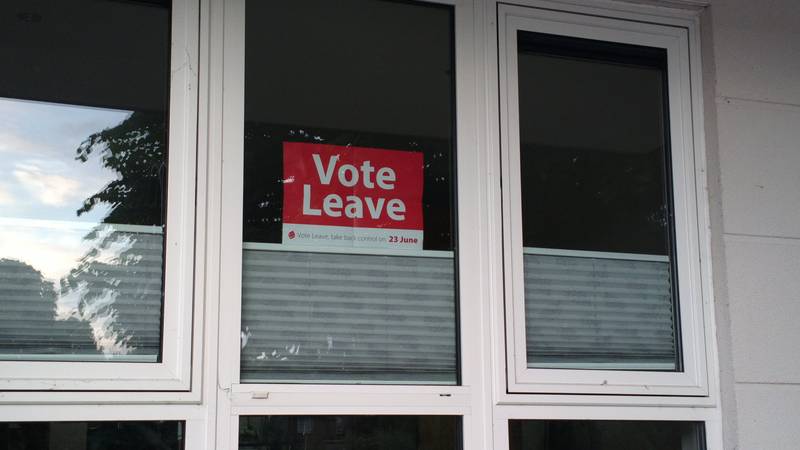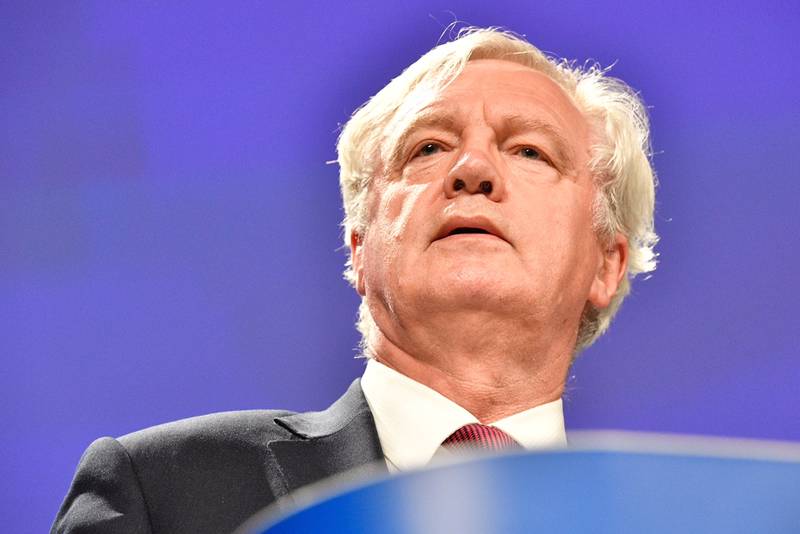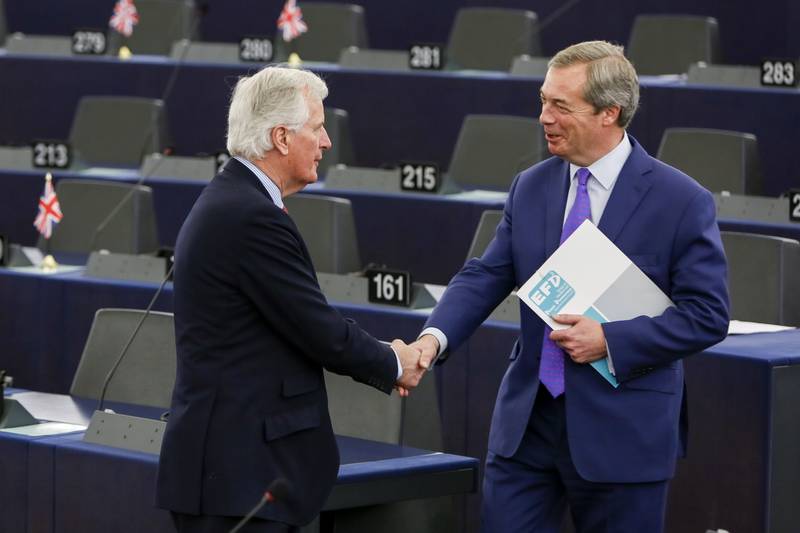First Win For Rule of Law over Post-factology
Adelina Marini, November 4, 2016

A country with rule of law is a country where law has control over the executive branch. As of late, however, this pinnacle of human evolution has started to mutate into a new totalitarian form, masked as a rebellion against the establishment. Law has gradually started to get pushed aside by “the will of the people”, skilfully orchestrated by the ideology of the 21st century – post-factology. If in the 20th century truth to people was what it said in the paper, today truth is what is said in social media. Truth is now measured by the number of likes, not by the facts behind it. The tight chains of the rule of law state with its “politically correct” rules and norms turned out to be too tight for rebels against the old ideologies, who are attempting to win on their side voters, disappointed by the global changes, in order to get their hands on power. Thus the lovingly called “populists” began to rummage feverishly through the toolbox of democracy in order to find a way to set themselves loose of these chains and bend the rules.
The referendum turned out to be the most suitable instrument. In some countries it is a tradition, because elections are won on the basis of a pack of promises, but governance sometimes requires that decisions are made, which go beyond those promises. This is why, politicians ask the people before they make a decision which they have not received mandate for from the voters – to introduce a certain law or not. Everything is normal while a healthy debate is going on, based on facts. Following the start of the lengthy process of dying out of the political ideologies of the 20th century some space has opened for new ones, but in the intermission post-factology stepped in. Politics is no longer based on facts, but on likes. Debate stepped down to circuses. A prime example of such a development is the presidential campaign in the USA, but there are plenty of examples in Europe as well.
One of the glaring European examples was the Great Britain referendum, which was organised because of the political survival of the Tories faced by the rapidly advancing anti-factual party UKIP. And the campaign for it was in essence a battle against facts. In the end of the day, it was won by those who loathe facts and experts, because the campaign was turned into an unmatched gladiator fight. In one corner of the ring were facts, whose voice was hardly heard, and in the other were the muscled macho-Brexiteers, who won the liking of the audience, for which this really was nothing more than a circus. The very next day after the vote many went into a state of hangover and admitted to British TV channels that they never believed that their voice will matter so much.
And while we, journalists, from different parts of the world are often subjected to strict rules against lies and defamation, politicians are entitled to speak whatever they want to with total impunity. Their only limitation in developed democracies is not to propagate hatred, violence, and not to violate good manners. But even if they do, the most punishment they get is a fine or a civil suit. In extreme cases it could get to a resignation. There are no sanctions for lying, however. So from different stands you can hear all sorts of things, whose goal isn’t supporting a specific cause or ideology, but winning the trusty heart of the voter, who is being convinced that his saviour has finally arrived.
 So, from the European Parliament tribune, in televised debates, in the British House of Parliament, in the American election campaign, in the Hungarian campaign for the referendum against refugees, in the national discourse of almost all member states, one could hear hundreds of anti-facts, which sound like a revolutionary march in the ears of those who are suffering the most from the sins of the ruling class and are looking for a scapegoat for their hardships. The dirty work is left to journalists, who, if they are conscientious, or have conscientious bosses, reveal the lies but the only punishment is a possible drop in ratings. Lately, however, as it is most clearly seen in the USA, even that is no longer a valid instrument for pressure against indecent politicians, because people have started to accept such behaviour to be the norm.
So, from the European Parliament tribune, in televised debates, in the British House of Parliament, in the American election campaign, in the Hungarian campaign for the referendum against refugees, in the national discourse of almost all member states, one could hear hundreds of anti-facts, which sound like a revolutionary march in the ears of those who are suffering the most from the sins of the ruling class and are looking for a scapegoat for their hardships. The dirty work is left to journalists, who, if they are conscientious, or have conscientious bosses, reveal the lies but the only punishment is a possible drop in ratings. Lately, however, as it is most clearly seen in the USA, even that is no longer a valid instrument for pressure against indecent politicians, because people have started to accept such behaviour to be the norm.
Speech of the “locker room” type is more and more often used to excuse displays of racism, sexism, xenophobia, and most often of lies and anti-facts. Politicians have overstepped the last barrier, which guarded the democracy fortress. Up until recently we believed that democracy and a state ruled by law are irreversible, because they are achieved after long, often excruciating, and even bloody evolutionary, and in some cases revolutionary, process. More and more often, however, it begins to look like a house on feet of clay. Every lie, every anti-fact, every “locker room” line make those feet ever softer and more brittle. And there is no one to ask for responsibility. Politicians are granted immunity, which protects them from being held responsible for their lies. In other words, nowadays everything is allowed in a campaign.
So, to this very day the entire leadership of the Brexit campaign remains unpunished, although many of them admitted to lying. What is more – one of the faces of the campaign - former Mayor of London Boris Johnson – was even awarded a high public position – foreign secretary. It seemed kind of logical that the referendum results will not be accepted as legal due to the tons of spoken lies, for it could be interpreted as a manipulation of the vote, but alas.
The Court as the last pillar of rule of law
In all this atmosphere of democratic decadence, a light at the end of the tunnel appeared – the news that the High Court in London has ruled that the Theresa May government has no right to trigger Article 50 of the Treaty for the EU, which starts the difficult process of Great Britain’s leaving, without the Parliament’s consent. This is the way to finally reinstate the legal-institutional balance in society, occupied by the new authoritarian form – post-factology. The court ruling is just the first step in this direction, but it is of paramount importance, because Theresa May’s government did everything in its power, through action and inaction, to legitimise without Parliament the Brexit, which was achieved based on a referendum organised entirely on the basis of manipulative argumentation and post-factology.
This could (and still can) have dire consequences for British democracy, which has been built for so long and so arduously, and which has served as a guiding light for dozens of countries worldwide, which have broken the shackles of totalitarianism and chosen democracy. According to the court, the question of whether the government has the right to notify the EU of the decision to leave the Union using the activation of Article 50 is entirely legal. The court is not interested in what the benefits of leaving are, for this is a political question. Reactions to the ruling, which will be appealed by the government, show that, at this stage, the court remains the sole institutional player which can save the rule of law and thus democracy. These reactions further show that, truly, the rule of law is at stake.
 Government attorneys believe that the exclusive powers of the Crown are a legitimate way to force through “the will of the people”, who voted with clear majority to leave the EU in June, reports The Guardian, pointing out the problem, which I mentioned earlier. Post-factologists are attempting to force the will of the people, regardless of the fact that it could have been manipulated, over law, thus destroying the rule of law. Just like Viktor Orbán attempted to trample the law by placing “political validity” above it, another synonym for the will of the people. UKIP leader Nigel Farage stated that he is angry with the ruling of the independent court. He speaks of betrayal and threatens the foundations of the state: “I now fear that every attempt will be made to block or delay the triggering of article 50. If this is so, they have no idea of the level of public anger they will provoke”, goes his statement, which demonstrates total lack of respect for the independent institutions in a country under rule of law.
Government attorneys believe that the exclusive powers of the Crown are a legitimate way to force through “the will of the people”, who voted with clear majority to leave the EU in June, reports The Guardian, pointing out the problem, which I mentioned earlier. Post-factologists are attempting to force the will of the people, regardless of the fact that it could have been manipulated, over law, thus destroying the rule of law. Just like Viktor Orbán attempted to trample the law by placing “political validity” above it, another synonym for the will of the people. UKIP leader Nigel Farage stated that he is angry with the ruling of the independent court. He speaks of betrayal and threatens the foundations of the state: “I now fear that every attempt will be made to block or delay the triggering of article 50. If this is so, they have no idea of the level of public anger they will provoke”, goes his statement, which demonstrates total lack of respect for the independent institutions in a country under rule of law.
In other words – we are entering a phase of direct confrontation between rule of law and the wrath of the people (the will of the people, political validity, you name it), fuelled by post-factologists, who are not held under any legal or other accountability for the lies and anti-facts that they disseminate. Here it no longer matters whether Great Britain will leave the EU or not. It is much more important to keep the legal-institutional balance which will allow for the return of reason, and this will allow for a calm and cool talk, with facts, about the impact of leaving the EU. I come from a country where elections are often manipulated, bought, stolen. I see no difference in principle between elections in a fragile democracy like the one in Bulgaria and a referendum, held on the basis of post-factology. In both cases we are talking about an occupation of the rule of law.
Translated by Stanimir Stoev
 David Davis | © European Commission
David Davis | © European Commission Angela Merkel | © Council of the EU
Angela Merkel | © Council of the EU Michel Barnier, Nigel Farage | © European Parliament
Michel Barnier, Nigel Farage | © European Parliament